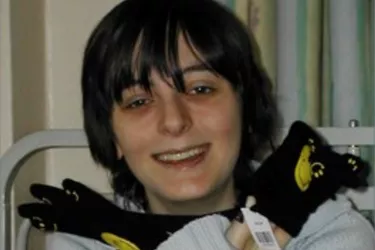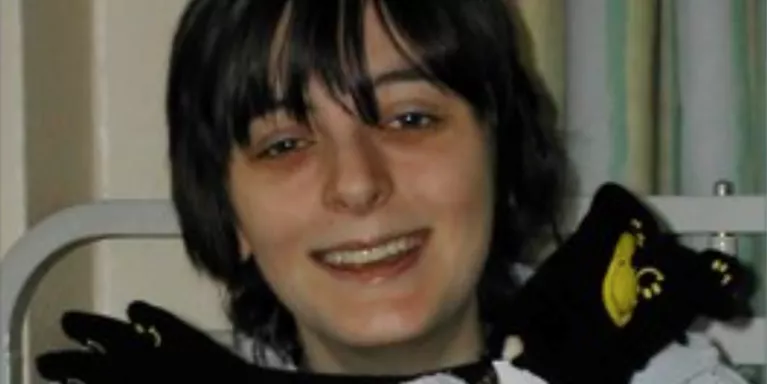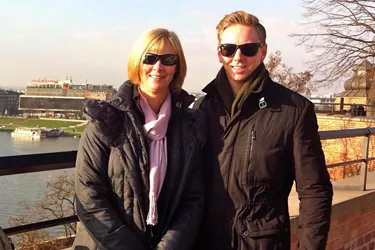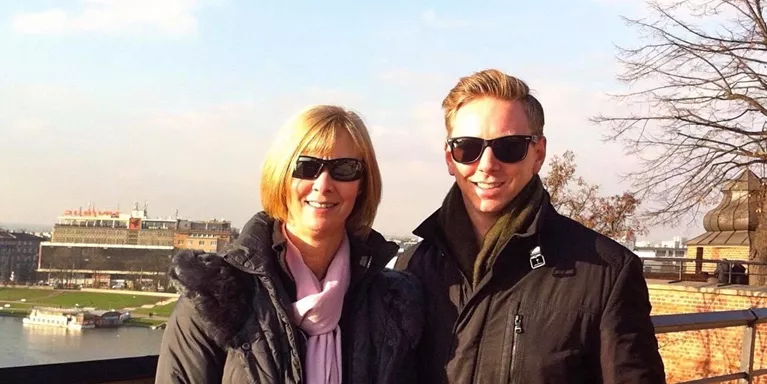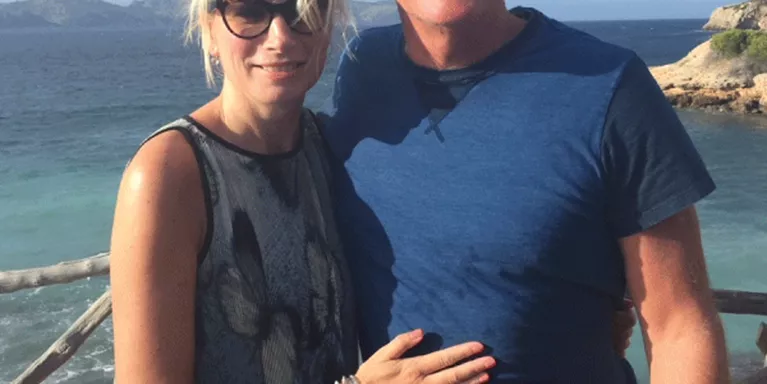Ruth's story: Christmas appeal 2018
To support our Christmas appeal, Ruth's mum Lynn blogs in memory of her daughter.
Many people love Christmas. Our daughter Ruth loved it twenty times more. She nagged from mid-November to put the tree up. It became a family tradition that she and her brother would choose a new bauble for the tree each year from the amazing display at our local garden centre.
Ruth sang carols around the house and sang and played her flute so many times in concerts in the month leading up to Christmas day that she often struggled to be up for school the next day. She spent hours wrapping her pound shop gifts so they looked a million dollars and just lapped up every moment of it.
Christmas 11 years ago wasn’t quite as magical. That year Ruth was in a psychiatric hospital, seriously unwell as a result of her borderline personality disorder.
I remember at the time looking at her favourite bauble (a glass angel playing the flute) and sensing that the bauble was all we would have of her next Christmas. Sadly I was right.
"I remember at the time looking at her favourite bauble (a glass angel playing the flute) and sensing that the bauble was all we would have of her next Christmas. Sadly I was right."
Ruth was extremely intelligent. She was mathematical, musical and creative. A kind person who championed the underdog and wasn’t afraid to take people on and tackle injustice where she saw it.
She was severely bullied at school, and faced a lot of physical health problems. She had troublesome asthma and digestion problems, as well as a genetic disorder which affected her joints and made writing painful. We were so proud of her getting to university with the health issues she had.
She was accepted to study medicine at Leeds University, and had many extra challenges to face as a disabled student. At university, she needed carers to help her with things like washing her hair and making a drink. Nonetheless, she was handling studies and her course really well and had won a couple of first year medical school prizes for her work.
This was before her mental health got drastically worse and she was hospitalised for the first time. We now know her mental health problems had started in her early teens after a traumatic incident, which she didn’t tell anyone about at the time.
Eventually she was diagnosed with borderline personality disorder.
Mind helped me a lot in the early days after Ruth was diagnosed as we as parents struggled to understand what her diagnosis meant and the rules around sectioning. We used the website to understand these and we also spoke to the Infoline, who were sensitive, practical and knowledgeable.
"Mind helped me a lot in the early days after Ruth was diagnosed as we as parents struggled to understand what her diagnosis meant and the rules around sectioning."
Our Local Mind was brilliant too. They helped us to find local services, including a counsellor for me who was wonderful. I attended one of their art therapy groups too.
Ruth’s physical health problems weren’t well accommodated on psychiatric wards. She was often stranded in bed because she couldn’t move on her own. In one placement there were no appropriate shower facilities. Accessibility to day hospital was poor.
"Ruth’s physical health problems weren’t well accommodated on psychiatric wards."
After a couple of years treatment Ruth blocked all contact with her family and friends which was terrifying as we knew she was very unwell but could have no input into her care. She died while a voluntary patient on a psychiatric unit. I believe that they should have had her on section at the time and that she shouldn’t have been allowed to be unsupervised with her history of suicide attempts. Instead she was allowed to go out alone on the day she died when only hours before she had been on close observations on the ward because she was deemed at high risk of hurting herself. At inquest it transpired she had two serious attempts at killing herself in the three months before she died.
A police officer came to our door to tell us Ruth had taken her own life.
I knew she was going to die, but I still had so much disbelief when it did happen. For about five years after she died, she was in my head all the time. I couldn’t switch off. I had horrible flashbacks.
"For about five years after she died, she was in my head all the time. I couldn’t switch off. I had horrible flashbacks."
Bereavement is tough. All the “happy times” that have followed Ruth’s death are tinged with a deep sadness for me.

I hated Christmas after we lost Ruth. I couldn’t cope with any happy family stuff. I didn’t want to receive Christmas cards from other people and I couldn’t stand getting those ‘round robin’ letters with tales of how well other people’s children were doing. I just wanted to hide and cry. Steve, my husband, wanted everything normal – the last thing that I wanted to do.
"Bereavement is tough. All the “happy times” that have followed Ruth’s death are tinged with a deep sadness for me."
I cope now by doing Christmas differently – we don’t have a tree. If it’s too much like Christmas with Ruth, I can’t cope. I have realised I am far from alone in finding it a difficult time of year and it has helped to change routines and aim for a gentler quiet day.
Christmas, nor any day for that matter, will ever be the same without Ruth in our lives.
Lynn, Ruth's mother.
This can't go on
Every two hours, someone in England and Wales takes their own life. This can’t go on. We’re determined that, in 2019, more people will get help early on.
Your gift today to our Christmas appeal could help in so many ways. You could help us empower people to take that crucial first step – speaking to their GP. You could help Mind expand our Infoline and our website to give people life-changing advice early. And you could help us campaign harder than ever for better emergency care.

Information and support
When you’re living with a mental health problem, or supporting someone who is, having access to the right information - about a condition, treatment options, or practical issues - is vital. Visit our information pages to find out more.
Share your story with others
Blogs and stories can show that people with mental health problems are cared about, understood and listened to. We can use it to challenge the status quo and change attitudes.










